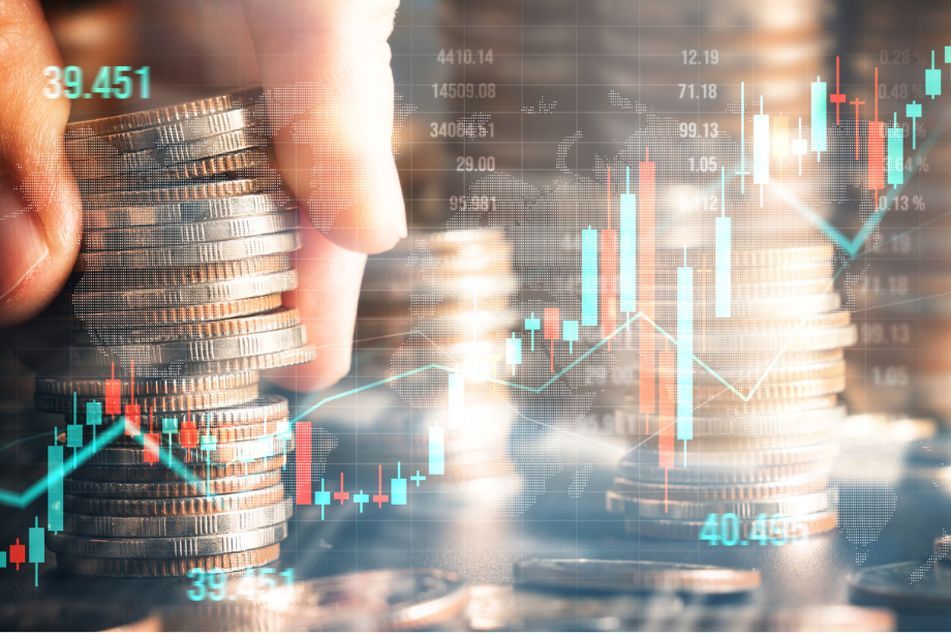Macro-proof tech trade smashes ETF records

Tech ETFs have hoovered up some $9B so far this year as investors embrace the idea of megacaps’ endurance through economic cycles.
Investors are plowing into technology-tracking ETFs at a record clip as conviction builds that the market’s biggest stocks can thrive in almost any economic cycle.
As fears of sticky inflation and climbing bond yields stalk markets, traders have been shoveling money into big tech all year, lured by best-in-class earnings growth and strong balance sheets. Tech exchange-traded funds have absorbed about $9.2 billion so far in 2024, the most of any other sector by a margin of nearly $7 billion.
Appetite is building for big tech as investors increasingly buy into the idea that the megacaps can fit into almost any box: growth strategies, haven bids or income plays. Microsoft Corp. and Alphabet Inc. were powerful reminders of that narrative, with the latter introducing its first-ever dividend after both companies crushed earnings estimates and helped propel the S&P 500 to its best weekly performance of the year.
Now, as the Federal Reserve looks to keep interest rates at elevated levels to combat stubborn inflation, the thinking goes that profitable tech companies will be able to handle the pressure.
“We would be focusing very strongly on those companies which have the pricing power, cash flow, strong balance sheets, are able to out-compete the others in their sector. Which actually takes you back to tech,” Seema Shah, chief global strategist at Principal Asset Management, said on Bloomberg Television. “Whichever way you slice and dice it, we continue to like that megacap tech space.”
Microsoft and Alphabet delivered first-quarter revenue that topped expectations and reports that were strong enough to help “offset concerns over the US economic outlook,” UBS Global Wealth Management wrote. All told, tech revenue is expected to rise 8.6% for the quarter, more than double the 3.5% gain anticipated for the broader S&P 500, according to Bloomberg Intelligence.
The thesis of big tech prevailing through rain or shine has been tested by volatility in Tesla Inc.’s shares, as electric-vehicle demand cools. Meta Platforms Inc.’s stunning rally was also brake-checked by a less-than-inspiring revenue outlook.
Still, the $253 million Roundhill Magnificent Seven ETF (ticker MAGS) has soared nearly 18% so far this year, outpacing the S&P 500 and the tech-heavy Nasdaq 100 that gained 7.3% and 5.4%, respectively, as of Monday’s close.
While Apple Inc. — which reports earnings on Thursday — has been plagued by reports of weakening Chinese demand for iPhones, economic struggles in any one country won’t leave too deep of a dent, according to Annex Wealth Management’s Brian Jacobsen.
“A lot of them have so much heft and such global presence that they aren’t necessarily beholden to a downturn or slowdown in China or Europe, or even the United States,” Jacobsen, the firm’s chief economist, said on Bloomberg Television. “They are macro agnostic, provided we don’t have a synchronized downturn.”
The biggest tech names have exhibited dominant performance even as yields on 10-year Treasuries have climbed to nearly 4.7% from about 3.90% at the start of the year, defying conventional wisdom that rising rates would weigh these companies down. But the reality is that the megacap cohort has relatively low debt levels and aren’t as interest-rate sensitive as compared to most companies, Principal’s Shah said.
But perhaps the most powerful display of big tech’s staying power has been the introduction of dividend payments, which have traditionally been a feature of more mature and slow-growing companies. Meta announced its first such payout earlier this year, followed by Alphabet’s inaugural dividend announcement last week. Among the six largest US tech companies, Amazon.com Inc. — which releases earnings after the market close on Tuesday — is the only one without a quarterly payout.
“When people start to talk about walking away from tech, you can’t really walk away from that kind of cash generation and that kind of growth,” Sarah Hunt, chief market strategist at Alpine Saxon Woods, said on Bloomberg Television. “What you’re seeing generated right now is that growth can continue and it can ramp itself up in ways that people weren’t quite expecting. That really saved equity markets.”
Learn more about reprints and licensing for this article.








